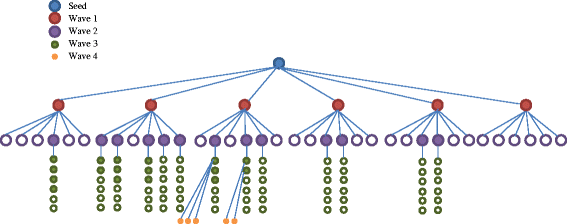Women's experiences seeking informal sector abortion services in Cape Town, South Africa: a descriptive study
- PMID: 28969631
- PMCID: PMC5625615
- DOI: 10.1186/s12905-017-0443-6
Women's experiences seeking informal sector abortion services in Cape Town, South Africa: a descriptive study
Abstract
Background: In settings where abortion is legally restricted, or permitted but not widely accessible, women face significant barriers to abortion access, sometimes leading them to seek services outside legal facilities. The advent of medication abortion has further increased the prevalence of informal sector abortion. This study investigates the reasons for attempting self-induction, methods used, complications, and sources of information about informal sector abortion, and tests a specific recruitment method which could lead to improved estimates of informal sector abortion prevalence among an at-risk population.
Methods: We recruited women who have sought informal sector abortion services in Cape Town, South Africa using respondent driven sampling (RDS). An initial seed recruiter was responsible for initiating recruitment using a structured coupon system. Participants completed face-to-face questionnaires, which included information about demographics, informal sector abortion seeking, and safe abortion access needs.
Results: We enrolled 42 women, nearly one-third of whom reported they were sex workers. Thirty-four women (81%) reported having had one informal sector abortion within the past 5 years, 14% reported having had two, and 5% reported having had three. These women consumed home remedies, herbal mixtures from traditional healers, or tablets from an unregistered provider. Twelve sought additional care for potential warning signs of complications. Privacy and fear of mistreatment at public sector facilities were among the main reported reasons for attempting informal sector abortion. Most women (67%) cited other community members as their source of information about informal sector abortion; posted signs and fliers in public spaces also served as an important source of information.
Conclusions: Women are attempting informal sector abortion because they seek privacy and fear mistreatment and stigma in health facilities. Some were unaware how or where to seek formal sector services, or believed the cost was too high. Many informal methods are ineffective and unsafe, leading to potential warning signs of complications and continued pregnancy. Sex workers may be at particular risk of unsafe abortion. Based on these results, it is essential that future studies sample women outside of the formal health sector. The use of innovative sampling methods would greatly improve our knowledge about informal sector abortion in South Africa.
Keywords: Abortion; Illegal abortion; Snowball sampling; South Africa; Unsafe abortion.
Conflict of interest statement
Ethics approval and consent to participate
Ethical approval was obtained from the Human Research Ethics Committee, University of Cape Town (HREC REF NO: 510/2014) and from the Committee on Human Research at University of California, San Francisco (IRB #14–13,060). Two sets of incentives were provided to participants: participants received the first incentive (ZAR100) when they completed the survey with a valid coupon and they received an additional incentive (ZAR50) for each participant they subsequently recruited in to the study. Women who were not eligible received a nominal amount (ZAR20) to cover travel expenses. All participants provided written consent prior to participating in the interview.
Consent for publication
Not applicable.
Competing interests
The authors declare that they have no competing interests.
Publisher’s Note
Springer Nature remains neutral with regard to jurisdictional claims in published maps and institutional affiliations.
Figures
References
MeSH terms
LinkOut - more resources
Full Text Sources
Other Literature Sources
Medical
Miscellaneous


